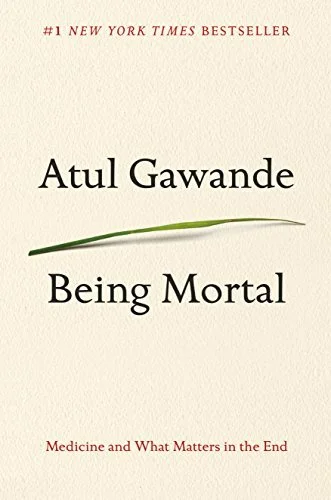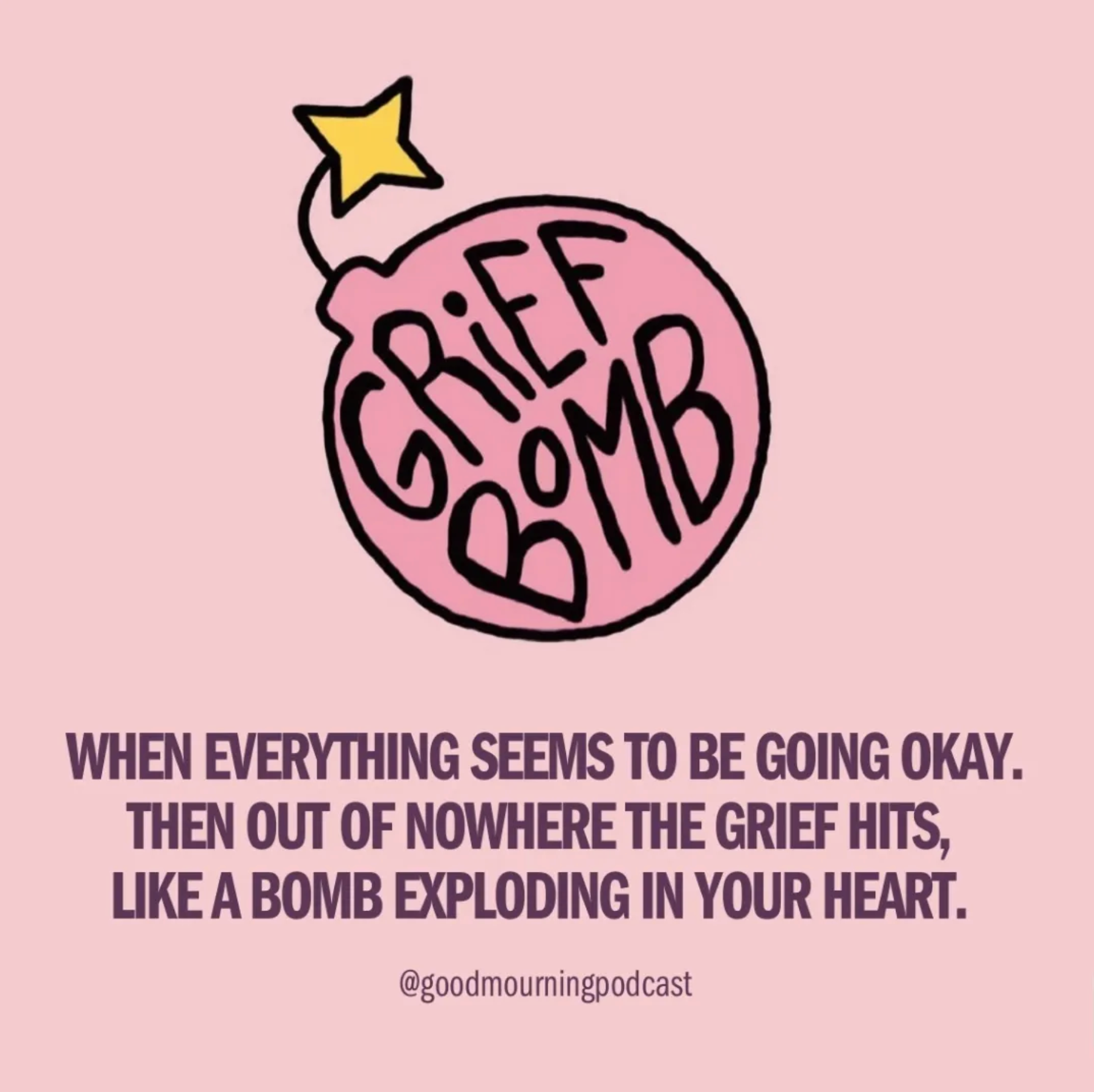Good Grief | Resources for the complicated parts of love
Like every grief story, mine is different.
I lost both of my parents seven weeks apart after a roller coaster of chaos over the course of three years. Then, just weeks later, my best friend lost her battle with mental illness.
To set the stage, I was born the “late lamb” (a child born many years after its siblings) of two incredibly dynamic, intellectual, and spirited individuals.
In 2020, my mom was diagnosed with behavioral Frontotemporal dementia at the age of 68 after years of speculation and uncertainty. The combination of her progressive diabetes and mental disorder proved to be detrimental in finding solutions that could provide any quality of life.
Meanwhile, my dad, 87, although healthy and mentally spry, faced his own mortality of old age and ultimately a hip fracture that led to a steady decline.
And then, unexpectedly, my dear friend, the brightest light I’ve ever known, ended her battle with mental illness. A complete shock to the system opening up an entirely new glimpse of mortality and mental illness
ATTEMPTING TO UNDERSTAND
From an early age, I was met with a great deal of loss. I’ve said my goodbyes to both sets of my grandparents, aunts, uncles, a niece, and over ten of my peers to various accidents or illnesses.
Losing my parents changed me. Losing my dear friend unexpectedly crushed me.
The reality, I’ve learned, is that each and every loss will look and feel different BECAUSE of your relationship with the individual AND you experience with the dying process. How I process, even as a sibling, can be completely different because of the individual experiences of each person within that relationship.
Grief is not a 5-step process. You don’t “get over” it, you live through it and find ways to honor and memorialize your loved ones while also finding ways to heal from the unanswered questions, or ups or downs within any given relationship.
Even the woman who originally formulated the five stages of grief, psychiatrist Elisabeth Kubler-Ross, put “stages” in air quotes in her bestselling book, On Death and Dying. This was to highlight the fact that some people experience multiple stages at once, and skip others altogether.
I’ve spent a lot of grief time thinking, reading, writing, and talking, while also trying various modalities to aid in processing. I can firmly say that as with any self/healthcare related endeavor, we must be our own advocates for what works best for US.
In attempting to understand the differences between “good grief” and “negative grief” and documenting my awareness of such, there are several resources I’ve found to bring about peace, understanding, and even forgiveness to myself.
MASTERMIND & THERAPY
It goes without saying, I am a strong advocate of therapy and any personal development concentration. I’ve found the need for this support early on in my life and caregiving journey and only wish I had started the process sooner.
For me, dealing with compounded grief and events leading up to the loss of my parents required the need for a trauma specialist that deals with grief and PTSD. Within these conversations I’ve found support and referrals in many forms, including EMDR therapy.
I’ve been apart of masterminds like Spirit Drivers, have had some of the best (and not so great) counselors, spoken to incredible life and mindfulness coaches, and stumbled upon healing therapy centers such as Happy Whole You. I’ve learned that in no way is therapy a one size fits all approach. Finding a good therapist or group you can build a genuine relationship with takes time. And, sometimes that one individual may not meet every need you have on your journey.
Having an open mind, an open heart, and asking any and all questions throughout the process is key to finding and attracting the resources you need.
BOOKS & ONLINE FORUMS
“The ultimate goal is not a good death, but a good life all the way to the very end.”
My niece recommended this book to the family during her time in med school. An important book for all as the need to normalize the conversation surrounding death prevails in our society.
We live in a “fix it” society - from orthopedics to plastic surgery, biohacking and beyond, we want to find ways to “fix” the aging process rather than accept the reality of our own mortality. Sadly, the healthcare industry is following-suit (and understandably) as more and more providers seek out professions with a higher satisfaction rate than that of geriatrics or mental health.
ITS OK THAT YOU’RE NOT OK by Megan Devine
“Why does our culture treat grief like a disease to be cured as quickly as possible?
This book showed up on my doorstep thanks to a dear friend just after my mom passed. It has highlights, ripped and folded pages, photos for bookmarks, tears, coffee stains, and more, as I held it close throughout.
This book made me feel seen. I felt I had somewhere to go to make sense, or validate the nonsensical, of what I was going through. From the emotional and mental, to the physical and spiritual. It also serves as key resource as to HOW to treat others experiencing grief.
THE FOUR AGREEMENTS by don Miguel Ruiz
“Simple yet so powerful, has made a tremendous difference in how I think and act in every encounter.” — Oprah Winfrey
The only true power we have is in how we control our thoughts and our actions. don Miguel Ruiz reveals the source of self-limiting beliefs that rob us of joy and create needless suffering. In it, I found ways to rethink the thoughts within my head and create new experiences and narratives that surround them.
While I would advocate for anyone to read this book, I found the principles and stories to serve me in my grief journey within my own self-talk and to how I speak about my thoughts, and feelings with others.
Let me start by saying, I know this may not be for everyone and I respect everyone on their own spiritual or religious journey. It has been just that for myself, too. Growing up Catholic, I found myself on a journey to understand my own beliefs within my conversations with God. Reading the bible was something I didn’t realize I was looking for, but needed most.
Now an adult, I began to read bible verses and devotions the same way I would an inspirational quote, self-help article or Brene Brown book (LOVE HER). Mainly, I began reading and utilizing the Bible App from an academic standpoint in 2018. When I had so many BIG questions about life, love, myself, my situation, and my grief, I not only found answers, but found it to be immensely thought provoking and healing when read and accepted with an open mind verses from the lens of organized religion.
With all that to say, if you’ve ever been curious, or in some way called to read the Bible, the Bible App provides “Plans” surrounding specific topics of interest or needs, daily prayers, gratitude practices and more.
If you align more closely with that of the Koran or Torah, Astrology, or yoga, fantastic. My point in this is to encourage you to find anything that nourishes your soul and spirit throughout this journey.
ONLINE FORUMS AND ADVOCATES:
Understandably, not everyone has the time or interest to sit and read a whole book. While grief doesn’t take a day off we still need to find ways to live out our lives during the process. Luckily, we have the likes of Instagram and online communities that serve us, especially in times we need them most.
From the emotional to the entertaining, every-time a post graces my feed, or when I have a few minutes to dive into their page, I feel just a bit lighter thanks to the likes of these creators:
@REGUGEINGRIEF: Writing Your Grief course & community
@GOODMOURNINGPODCAST: Talking all things #grief with honesty and humor
@SEERUTKCHAWLA: London based integrative psychotherapist.
@CURLYNIKKI: Helping you find Peace in chaos, Love in fear, Silence in noise, Light in darkness and start recognizing the Go(o)d in everything, including yourself.
If a specific illness or condition impacts you and your grieving process, I suggest researching communities directly related to such. Here are a few that I’ve leaned into given my journey:
@CHILDREN OF FRONTOTEMPORAL DEMENTIA: Support community for children or adult children who have a parent with frontotemporal dementia or who has lost a parent from FTD.
@MENTAL HEALTH FIRST AID: A skills-based training course that teaches participants about mental health and substance-use issues, and communication tactics.
In closing, I’d be remiss not to mention that grief is not always defined by death. Something I think we get confused by. Grief is any loss of a relationship with someone, something, or a part of yourself.
Anything that makes up our own identity, grief touches. There is no ranking system on how heavy your situation is depending on what it was - it's a feeling independent to each of us and that is all it has to mean to be respected.
While the loss of my loved ones still very much in front of me, my hope is to open the conversation about supporting others in grief, learn of resources out there that have helped others and most importantly, bring together a variety of different thinkers to discuss how we can better live with the reality of death. Within an attempt to “redesign death” my hope is for our society to normalize death and have a better understanding of the death, dying and grief process.
As my dear friend’s sweet sister said best, “Grief is the parallel life to the one you thought you’d be living with the one you are living now. It’s a journey controlled only by the narrator, and grief is the willingness to let go at times so to move forward.”
If you’ve experienced loss of any type, what are some things you’ve learned about yourself within the process? What resources have you found to be most helpful?







